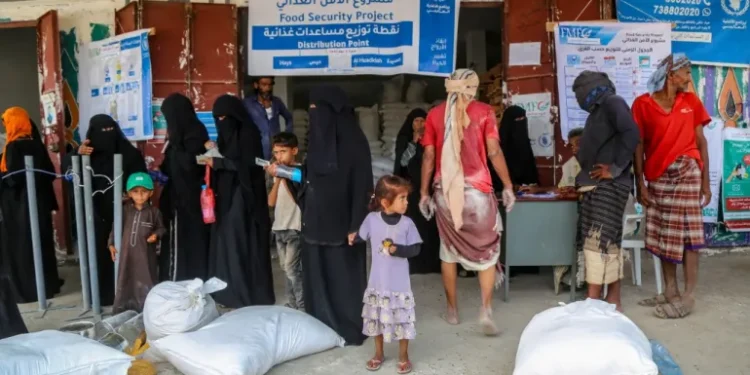Thousands of Mozambicans have fled to neighboring Malawi to escape escalating violence sparked by post-election unrest.
The displacement follows Mozambique’s Constitutional Council’s confirmation of the ruling Frelimo party’s victory in the contentious October elections, a decision that triggered protests, looting, and widespread insecurity.
Over 13,000 refugees have sought shelter in Malawi’s Nsanje district, enduring dangerous journeys across rivers and rugged terrain.
Among them is Ellen Kaosa, who fled with her children and other family members shortly after the court validated the election results. Kaosa described harrowing conditions at the Tengani displacement camp.
“Since Monday, I have not eaten,” Kaosa said. “I have children, and other women here are pregnant, elderly, or disabled.”
The camp lacks necessities such as toilets, running water, and mosquito nets. Refugees, including Kaosa, worry about diseases like malaria and waterborne illnesses during the rainy season.
“The whole reason we fled to Malawi is for safety, but we plead for help with food, bedding, and proper accommodation,” she said.
Local authorities have echoed these concerns. Nsanje district commissioner Dominic Mwandira described the situation as dire, emphasizing the urgent need for humanitarian assistance.
Many refugees remain separated from their families, with women reporting missing husbands who may have taken different routes to safety.
Malawi, in collaboration with the UN Refugee Agency (UNHCR), is working to assess the needs of those displaced. However, the country faces its own challenges, including food shortages and strained resources at its Dzaleka refugee camp, which already houses 54,000 refugees from other nations.
Human rights advocates are urging Malawi and the international community to prioritize aid for women, children, the elderly, and people with disabilities.
Moses Mkandawire, director of the Nyika Institute, called for coordinated efforts among Mozambican lawmakers, the Southern African Development Community (SADC), and other stakeholders to foster dialogue and peace.
“What is needed is to ensure we provide food, blankets, and humanitarian support,” Mkandawire said. He also stressed the importance of Malawi engaging with regional leaders in Mozambique for assistance.
Nsanje district spokesperson Robert Naija confirmed that Malawi has provided hundreds of bags of maize flour and beans for refugees. While temporary shelter has been arranged in primary schools, authorities are relocating asylum seekers to designated evacuation centers.
Local And Regional Struggles
The influx of refugees has placed additional pressure on Malawi, which is already grappling with hunger caused by El Niño-induced weather. Nsanje resident Malita Banda, who has assisted refugees in finding shelter, urged the Mozambican government to address the violence swiftly.
“My only request is that the Mozambican government should act quickly because they may face difficulties finding food,” Banda said.
Meanwhile, Malawi’s humanitarian efforts are further hampered by a funding crisis at the UN World Food Programme (WFP), which supports refugees in the country.
The violence stems from allegations of electoral fraud. Mozambique’s Constitutional Council declared Frelimo leader Daniel Chapo the October 9 presidential election winner with 65% of the vote, while opposition candidate Venancio Mondlane received 24%.
Mondlane, who disputes the results, has vowed to continue his fight for a recount and plans to issue a new call to action. The political unrest has left Mozambique in turmoil, with neighboring countries like Malawi bearing the brunt of the humanitarian fallout.
As Chapo prepares to be sworn in on January 15, the focus remains on resolving the political crisis and addressing the needs of those displaced. For refugees like Kaosa, the hope is not only for aid but also for peace, enabling them to return to their homeland.
READ ALSO: Ex Gratia in the Shadows, a Betrayal of Democratic Transparency























